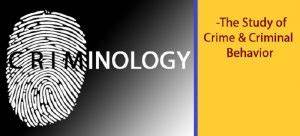Welcome to the IMH Department of Forensic Psychology and Criminology.

Forensic psychology is an applied and specialty area in psychology that provides psychological expertise to the criminal and civil legal system and the people who come into contact with the law. Forensic psychology is a relatively recent field within psychology that has grown a lot in the past 20 years.
Forensic psychologists apply psychological theory to criminal investigation to help understand psychological problems associated with criminal behavior, and the treatment of those who have committed offences.
Criminology (from Latin crimen, “accusation”, and Ancient Greek -λογία, -logia, from λόγος logos meaning: “word, reason”) is the study of crime and deviant behavior. Criminology is an interdisciplinary field in both the behavioral and social sciences, which draws primarily upon the research of sociologists, political scientists, economists, psychologists, philosophers, psychiatrists, social workers, biologists, social anthropologists, as well as scholars of law.

Criminologists are the people working and researching the study of crime and society’s response to crime. Some criminologists examine behavioral patterns of possible criminals. Generally, criminologists conduct research and investigations, developing theories and analyzing empirical patterns.
The interests of criminologists include the study of the nature of crime and criminals, origins of criminal law, etiology of crime, social reaction to crime, and the functioning of law enforcement agencies and the penal institutions. It can be broadly said that criminology directs its inquiries along three lines: first, it investigates the nature of criminal law and its administration and conditions under which it develops; second, it analyzes the causation of crime and the personality of criminals; and third, it studies the control of crime and the rehabilitation of offenders. Thus, criminology includes within its scope the activities of legislative bodies, law-enforcement agencies, judicial institutions, correctional institutions and educational, private and public social agencies.

Forensic science is an exciting, industry-led subject area which uses science to investigate legal questions. Practitioners may work in a variety of roles and contribute to an investigation either through direct contact with the crime scene, the evidence or through opinions based on their expertise in a particular subject area.
Forensic science, also known as criminalistics, is the application of science to criminal and civil laws, mainly—on the criminal side—during criminal investigation, as governed by the legal standards of admissible evidence and criminal procedure. Forensic science is a broad field including a multitude of practices like DNA analysis, fingerprint analysis, blood stain pattern analysis, firearms examination and ballistics, tool mark analysis, serology, toxicology, hair and fiber analysis, entomology, questioned documents, anthropology, odontology, pathology, epidemiology, footwear and tire tread analysis, drug chemistry, paint and glass analysis, digital audio video and photo analysis.
Internationally Accredited Certificate and Diploma Courses Offered:
- Advanced Diploma Course in Criminology and Criminal Psychology
- Diploma Course in Forensic Psychology (48 Hours / 04 Months / 16 Weeks Duration)
- 35 Hour Online Self-Study Diploma Course in Criminology and Criminal Psychology
- 25 Hour Online Self-Study Certificate Course in Forensic Science
- 20 Hour Online Self-Study Certificate Course in Forensic Psychology
- 20 Hour Certificate Course in Criminology and Criminal Psychology
- 20 Hour Certificate Course in Forensic Pathology

